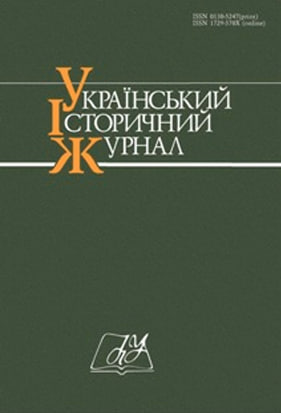Bolshevization of Students of Pedagogical Education Institutions of National Minorities in Ukrainian SSR in the 1920s – 1930s: Purpose, Means, Tasks
DOI:
https://doi.org/10.15407/uhj2021.02.093Keywords:
students, pedagogical institute, technical school, Bolshevik ideology, committee, social competitionAbstract
The purpose of the study is to clarify the purpose, means and objectives of Bolshevization students of pedagogical educational institutions of national minorities in the 1920s and 1930s, coverage of socio-political and educational activities of student youth, purposeful and controlled by party and Komsomol cells in pedagogical colleges and institutes, in general, party-state structures, as well as manifestations of opposition among her.
Research methods. The authors used a set of general scientific (analysis, synthesis, method of comparison, dialectical) and special scientific (historicalgenetic, historical-comparative, historical-typological, problem-chronological) methods of historical cognition.
Scientific novelty. The social and political life of the students of pedagogical educational institutions through the prism of its Bolshevization, subordination to the means and tasks of the Soviet-Stalinist leadership in the interwar period is analyzed.
Conclusions. For the Bolshevization of student youth, the imposition of Soviet-Stalinist ideology and the model of society, party and Komsomol cells in the educational institutions of national minorities practiced the organization of political circles, circles of “current politics”, political and Komsomol schools, “political battles”, “socialist competition”, propaganda of atheistic ideas, celebration of state holidays, honoring the memory of Bolshevik leaders, etc. In practice, such events, and in fact the party and Komsomol committees themselves, did not enjoy the proper authority among students. Instead, various debates and discussions on political topics with a free exchange of views were popular among young people, which, according to the authorities, posed a threat to the development of a “Marxist worldview”. The socio-political and educational activities of students were subordinated to the political and ideological guidelines of the Bolshevik Party and the Komsomol. In particular, they were involved in work in trade unions, public organizations, clubs, in various national campaigns, boss work in villages, urban enterprises, workers’ clubs, units of the Red Army, the elimination of illiteracy and more. In general, students of pedagogical colleges and institutes were less active in social work, especially in rural areas, than their colleagues from purely Ukrainian universities. Some students did not accept the Bolshevik model of society, which strengthened their opposition, which inevitably led to repression in their environment.


